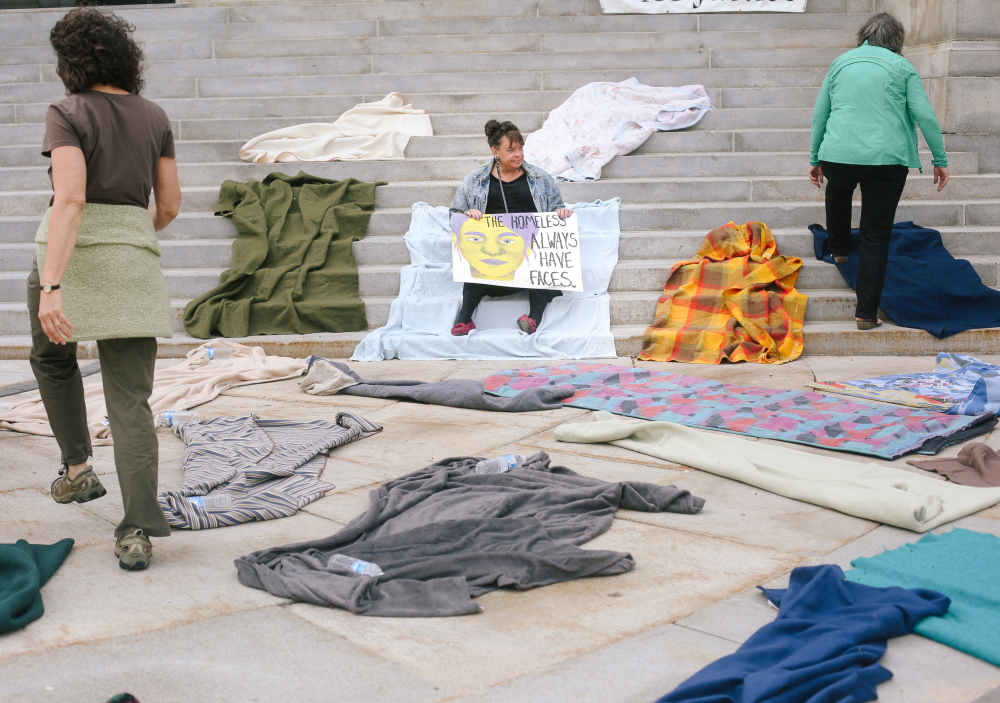It’s not the city of Portland’s fault that more homeless people line up outside the Oxford Street Shelter than the building can hold. It’s not Portland’s fault that the family shelter also faces more demand than it can accommodate.
It’s not Portland’s fault that the governor of Maine has decided to make the city the focus of a relentless campaign to vilify poor people and blame them for the state’s economic problems.
It’s not Portland’s fault that a concentration of rental housing, job opportunities and social service agencies make it an attractive place for poor people to move.
It’s not Portland’s fault, but it is Portland’s problem. With the state unilaterally ending a 30-year agreement to divvy up the cost of emergency housing services for the homeless, the city is facing unpalatable choices. While none of the options look good, some of them would clearly be wrong. Unfortunately, that’s the direction the city could be headed.
On Monday, the council is scheduled to vote on a proposal to shut down the overflow spaces for the Oxford Street and family shelters. That would mean approximately 100 people, including children, would be turned away every night with no place to sleep in the city.
The move would save $1 million from the city budget, and Portland’s taxpayers are understandably tired.
But Portland should not turn its back on people who have nowhere else to turn.
The solution is complicated and will require a level of cooperation that so far has not been seen in city politics. The city is in the middle of a housing shortage and needs to add to its supply of low-income and market-rate units. Otherwise, homelessness will increase no matter what services the city will pay for. Increased density of residential development should not be a controversial idea.
Members of the city’s business community should be lobbying in Augusta making the case for the state’s economic engine. A Republican governor and rural legislators have not been sympathetic to the urban poor and the people who advocate for them. Businesspeople complain about panhandlers and people who live in parks and dark corners. Those same business leaders could make the case to lawmakers that the state’s economy suffers when the state government fails to live up to its responsibilities.
Portland city councilors should explain to taxpayers that they will have to bear this burden for now, even though it’s not fair. No one wants to pay more in taxes, but telling 100 people every night that there is no safe place for them to sleep is not a realistic solution to this problem.
It’s not Portland’s fault, but it is Portland’s responsibility. The council should acknowledge that and do the right thing.
Send questions/comments to the editors.



Success. Please wait for the page to reload. If the page does not reload within 5 seconds, please refresh the page.
Enter your email and password to access comments.
Hi, to comment on stories you must . This profile is in addition to your subscription and website login.
Already have a commenting profile? .
Invalid username/password.
Please check your email to confirm and complete your registration.
Only subscribers are eligible to post comments. Please subscribe or login first for digital access. Here’s why.
Use the form below to reset your password. When you've submitted your account email, we will send an email with a reset code.